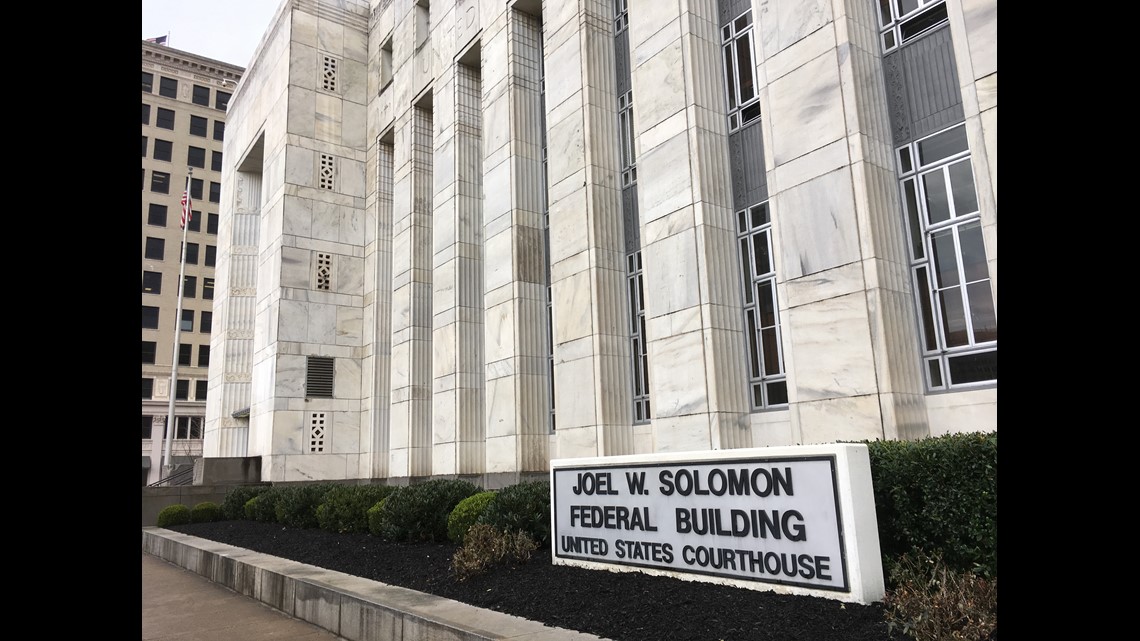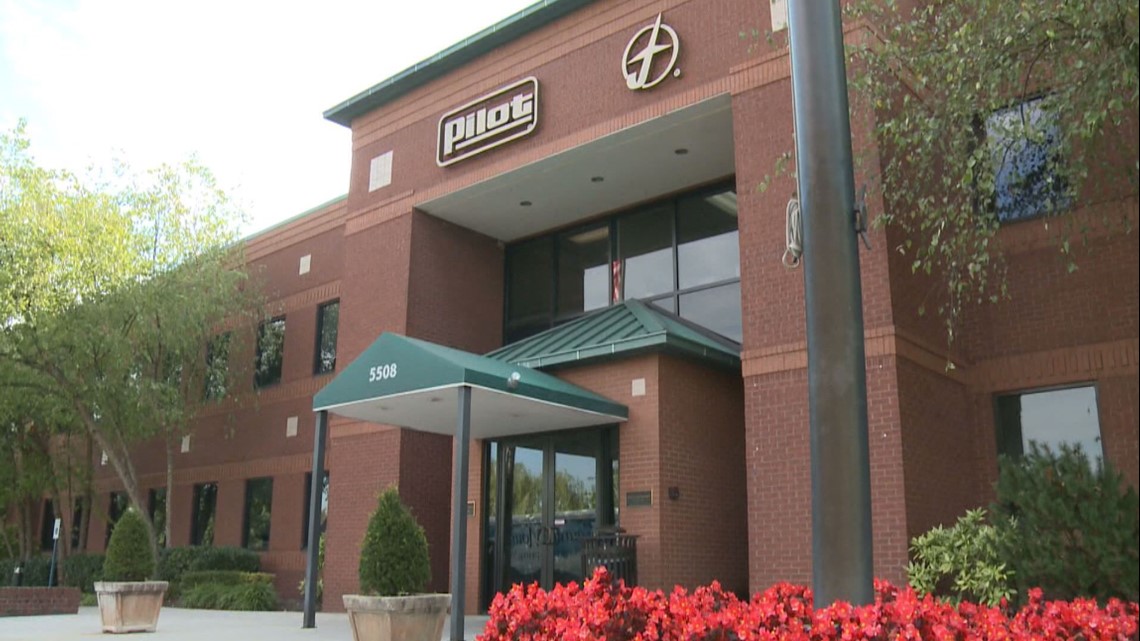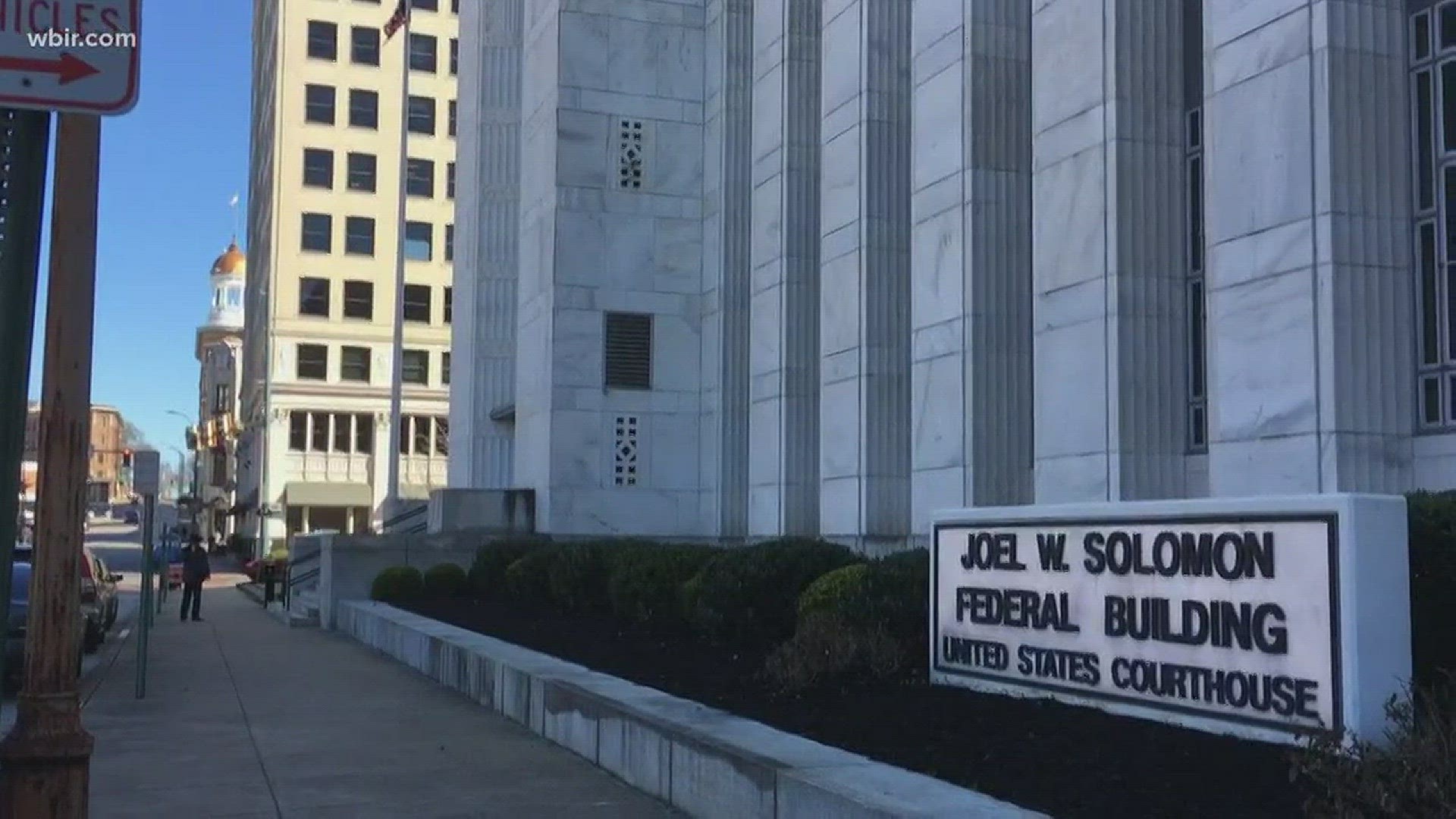Government prosecutors are done presenting their main evidence in the fraud trial of four former Pilot Flying J employees, a federal judge told jurors Monday afternoon.
Court won't be held Tuesday in the case in Chattanooga because of an unexpected event. On Wednesday afternoon, the defense can begin offering its proof, U.S. District Judge Curtis Collier said.
Trey Hamilton and David Lewen of the U.S. Attorney's Office for the Eastern District of Tennessee in Knoxville began putting on their proof in early November.
Mark Hazelwood, the former Pilot president, former sales executive Scott Wombold and sales employees Heather Jones and Karen Mann are accused of taking part in a scheme to defraud some Pilot trucking customers of promised fuel rebates.
The government alleges the scheme ran from at least 2008 to 2013 and netted the company and sales employees millions of dollars.
Hazelwood is also accused of trying to influence his former executive assistant's testimony, a felony known as witness tampering.
Although the government began presenting evidence to jurors three months ago, their time in courtroom has been repeatedly interrupted.
Since November, court typically has gone two or three days a week, and it ceased for a month over the Christmas and New Year's holidays.
Just last week, jurors had the entire week off.
Taken together, the prosecution has had about 20 days in trial.


Collier told jurors at the end of the day Monday that they weren't needed Tuesday. They are to come back Wednesday afternoon so that defense attorneys -- and there's a team for each of the four defendants -- could begin to present their case.
It's not clear how much time defense attorneys will need to present their side, although they told Collier last year they anticipated it could take several weeks.
Former assistant testifies
Hazelwood's former longtime assistant Sherry Blake dominated testimony Monday.
She's believed to be the government's last witness, meaning they will conclude without calling two potentially significant people -- former Pilot vice president John Freeman and Vincent Greco, a former employee who became a confidential informant and cooperating witness.
Blake testified she worked 18 years for Hazelwood as his trusted right-hand aide. In addition to helping him do his job as he rose through the ranks of Pilot to become president, she testified she also ended up helping him with his personal affairs, such as bill-paying and his other business interests.
For example, she testified that Hazelwood as he advanced in Pilot ended up buying an airplane, becoming involved in a development business and becoming an investor in a sports management firm. Prior testimony has showed he made more than $75 million working for Pilot.
Blake told jurors she happily agreed to help Hazelwood and his wife, Jo.
"We were close," she said. "Mark was very good to me."
By about 2008, Hazelwood began giving her his own money as a gift each year for her help with his private affairs, she said. The first year he gave her a $25,000 check; after that he gave her $10,000 a year, she said.
Federal authorities in 2011 quietly began investigating whether some Pilot employees were cheating trucking customers out of promised diesel fuel rebates. On April 15, 2013, Blake testified many federal agents "raided" the private company's Bearden headquarters.
Over the course of the next 13 months, some employees left the company. Some pleaded guilty in plea deals with the government.
Hazelwood stayed, however, until May 2014 when he resigned in the face of being fired, Blake testified.
According to Blake, by that point Hazelwood already knew that she was set to speak in June 2014 with lawyers conducting an investigation on behalf of Pilot Flying J.
On the night of June 9, 2014, two days before that scheduled meeting, she testified that she got a series of calls that came either from Hazelwood's phone, his wife's phone or from the Hazelwood house.
In one of those conversations, she told jurors that Hazelwood brought up what were known as "trip reports" at the company. The reports summarized each week the activities of the direct sales force -- who they talked to and what kinds of deals they made. The government alleges they also included overt discussions of plans to fleece some trucking customers of promised diesel rebates.
Blake testified that Hazelwood told her on the phone, "I just needed you to know that I didn't read (the trip reports)."
She said that upset her because she knew better. She said she'd been preparing the reports for him for years, faithfully nagging Pilot sales personnel to turn in their reports for Hazelwood's review.
Blake testified she felt "betrayed" and "used" by Hazelwood in the phone conversation.
"I responded, 'Yes,'" she told jurors Monday. "Because I wanted the phone call to be over."
On cross-examination, Blake said she could not verify that she had seen him go over every trip report. The defense has sought to show Hazelwood actually didn't know the extent of the fraud scheme.
She acknowledged that at one point, she stopped preparing paper copies of the trip reports so that Hazelwood could review them on his iPad.
As Hazelwood's defense attorney Rusty Hardin pressed her, Blake admitted she didn't know if he read all the reports once they were put into a remote computer file for his review, and she admitted he wasn't technically oriented and also carried on an ambitious and demanding travel schedule that required his full attention.
But she remained resolute during questioning from prosecutor Trey Hamilton that Hazelwood was a workaholic who responded through emails to the routine trip reports, which included updates on how some sales personnel were misleading customers on what became known as "manual rebates."
Public release of secret recordings in limbo
Still to be addressed is whether some secretly recorded snippets of October 2012 conversations that included Hazelwood will be released. The government introduced them earlier this month to raise questions about his character.
Government prosecutors say in papers filed this month that they support the edited release to the public of records concerning the conversations.
Hamilton and Lewen say they're ready to offer narrowly tailored releases of records that address those conversations, secretly recorded by Greco, a cooperating government witness.
The government presented the tapes and transcripts to show Hazelwood had engaged in some conversations that were racially charged in private gatherings among some Pilot coworkers. The tapes also showed instances when participants including Hazelwood insulted the Cleveland Browns, which PIlot CEO Jimmy Haslam owns, Cuyahoga County, Ohio, and the city of Oakland, Calif.
The tapes show an aspect of Hazelwood's character, prosecutors argue. Greco made the recordings as the government began building a fraud case.


But the excerpts played earlier this month for the jury were at times muffled and hard to clearly discern. The government gave jurors transcripts of the conversations to help them follow along.
WBIR, the News Sentinel and other media organizations argue the snippets and transcripts along with sealed court documents about the conversations should be unsealed and released.
The news organizations argue the content is of public interest.
Judge Collier has been mulling the request for several weeks.
Defense attorneys for Hazelwood, Wombold, Mann and Jones oppose their release, arguing they're highly prejudicial. Wombold, Mann and Jones argue the conversations also have nothing to do with them.
Hardin, on Hazelwood's behalf, moved earlier this month for a mistrial on his client's behalf, arguing the recordings are inflammatory and unfairly damaging at trial. Collier has not acted on that motion.
Pilot Flying J has condemned the content of the taped conversations.
The trial is being held in Chattanooga because of extensive publicity in the Knoxville area.
The government alleges Pilot and some of its employees made millions by short-changing some trucking customers of promised rebates on diesel fuel. Pilot has paid a $92 million penalty and spent more than $80 million on civil settlements with customers related to the fraud.

